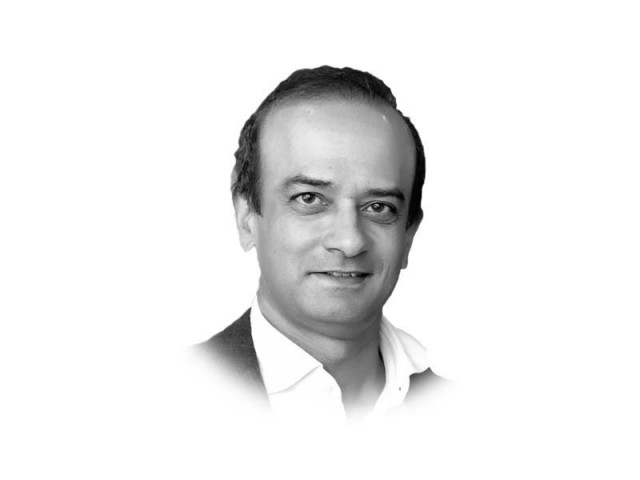The great decline
The golden age of Islam ended as a result of the opposite behaviour that led to its initiation

The writer, a graduate of Brown and Cambridge universities, is managing director at a fund management company based in Singapore
So is our conclusion that Muslims are somehow inferior? History would suggest otherwise. Soon after the death of the Holy Prophet (PBUH), the Muslim world was the driving force for progress in science and literature during the 8th to the 13th centuries. Much of this was due to an emphasis on Quranic and Hadith teachings that placed huge importance on the value of education and acquiring knowledge, and Islamic leaders sought to celebrate the glory of the Almighty through His gifts of science and literature. During this time, Islamic governments often acted as patrons of scholars, and produced luminaries such as Ibn Sina and Ibn Rushd in the field of philosophy, and Alhazen in the field of science and mathematics. Last summer, I visited Cordoba in Spain where in the 10th century the Cordoban Caliph al-Hakam II set up a library reputedly with 400,000 books (even if it was actually a fraction of this amount, the library was the largest in the world by far). So whilst Europe was regressing and engulfed in the dark ages, the Muslim world was the shining beacon for progress and learning throughout the world, and helped trigger the Renaissance which subsequently laid the foundations for culture and progress in the Western world.
Where did it all go wrong? There were political events — for example, the Mongol invasion and the Crusades are often blamed. And no doubt there are several other factors and nuances to consider — civilisations are complex and many factors influence how they move forward. But I think the basic answer is actually quite simple. The golden age of Islam ended as a result of the opposite behaviour that led to its initiation. Islamic countries and leaders chose to focus on religious studies at the expense of scientific inquiry and literary progress, not as a complement. Whilst the West was establishing universities, which became the cornerstone of progress and learning (and eventually Nobel Prizes), Islamic countries were establishing madrasahs which hardly taught science and literature. Academics and writers therefore required independent patronage from rulers, which became less forthcoming, and in any case this approach was less efficient than the university system. Today, there is not a single university from an Islamic country in the top 100 in the world.
And ironically Pakistan’s only winner in science Abdus Salam’s legacy has been tarnished by the issue of religion. At St John’s College, Cambridge, where he was educated, his portrait hangs in a place of honour next to other graduates such as the great poet William Wordsworth and the emancipator of slaves William Wilberforce. It is a pity that he is generally not afforded the same respect in his home country of which he himself was so proud.
Religious learning needs to be balanced with scientific and literary study, as it was in the centuries after the death of the Prophet (PBUH). And leading scientists and writers should be patronised and treated by our leadership as national icons, as they were in Islam’s golden age. We truly have a lot to learn from those times.
Published in The Express Tribune, February 8th, 2018.
Like Opinion & Editorial on Facebook, follow @ETOpEd on Twitter to receive all updates on all our daily pieces.














COMMENTS
Comments are moderated and generally will be posted if they are on-topic and not abusive.
For more information, please see our Comments FAQ